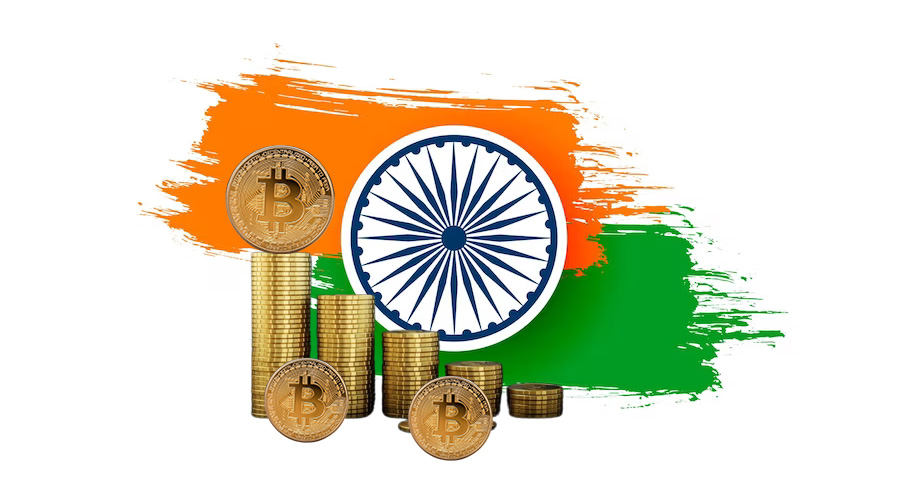 Here is how the Indian economy is affected by the rise of cryptocurrency in the country
Here is how the Indian economy is affected by the rise of cryptocurrency in the country
In India, the road to the adoption of cryptocurrencies has been rocky due to a past ban and the possibility of stringent restrictions. This digital asset has encountered various difficulties. The popularity of cryptocurrencies, particularly bitcoin, has increased in India since 2020 despite legal uncertainties, with domestic exchanges reporting around 1.5–2 crore investors and a $10 billion market in November. The country’s investing trends, which were historically centered on safer assets like gold, have changed as a result of the rising interest in unregulated digital currency. It’s important to review the development of virtual currencies in India up to this point in light of the impending Cryptocurrency and Regulation of Official Digital Currency Bill. Let’s examine each question that has been raised about cryptocurrency one at a time.
There are a lot of private cryptocurrencies available in India nowadays. Governmental organizations continue to utilize Bitcoin despite it being the most widely used cryptocurrency. Here is a list of private cryptocurrencies in India:
- Bitcoin (BTC)
- Tether (USDT)
- Ripple (XRP)
- Shiba Inu (SHIB)
- Litecoin (LTC)
- Elrond (EGLD)
- USD Coin (USDC)
- Ethereum (ETH)
- Ripple (XRP)
- Dogecoin (DOGE)
Over the past few years, India’s retail payments system has grown dramatically. It has progressed and grown more dynamic. Numerous payment operators, wallet businesses, and suppliers to operators and card companies are all part of the large payment field. The first digital rupee initiative in India was recently introduced by the Reserve Bank of India (RBI) for the wholesale sector. The digital rupee, also known as the Central Bank Digital Currency (CBDC), is printed on currency notes by the Reserve Bank of India’s (RBI) central bank. It is analogous to banknotes, but because it is digital, it is probably simpler, faster, and less costly. It also offers all the transactional advantages that other digital payment systems offer. Customers will always have access to the payment system, whether they are purchasing wholesale or retail. Direct payments from Indian clients allow for real-time account settlements and decrease transaction costs. Additionally, using a digital rupee will eliminate the need to create a bank account and speed up foreign exchange operations. The RBI’s proposed digital rupee would be created using an innovative payment system that is convenient, economical, efficient, safe, and secure and intends to support the digital economy even more. It should be highlighted, nonetheless, that the idea behind starting a digital currency is simply to supplement, not to replace, the current forms of financial transaction. While the present payment system is still in operation, it will give consumers an extra payment alternative. Consequently, it is reasonable to say that the use of digital currency will have no impact on that of traditional currencies. the CEO of Finway FSC, Rachit Chawla, remarked.
There are presently no rules for resolving legal disputes involving the usage of cryptocurrencies, and no central body in India issues or regulates them. Anyone who trades cryptocurrencies does so at their peril. The introduction of a tax on digital assets by India’s Finance Minister, Nirmala Sitharaman, sparked debates regarding the legitimacy of cryptocurrencies in the nation. The governor of the Reserve Bank of India (RBI) and other important ministries have not outright prohibited cryptocurrencies, but they have also not given them formal recognition. The first formal regulation of cryptocurrencies in India came in 2022 when the government placed a 30% tax on cryptocurrency income and a 1% tax deducted at source. The Indian government must issue an official declaration before cryptocurrencies are deemed lawful.
The taxation of cryptocurrencies in India is a complicated matter that just underwent modification. In the past, cryptocurrencies in India were not subject to income tax or the goods and services tax (GST). However, a tax structure for virtual or digital assets, such as cryptocurrency, was included in the Union Budget of 2022. Investors in cryptocurrencies are subject to a new system that requires them to maintain an accurate record of their earnings and losses as part of their income. Profits made through the transfer of virtual or digital assets, such as cryptocurrencies and NFTs, will be subject to a 30% tax by the government, and the purchase cost will be included in the reporting of gains. Furthermore, a tax of 1% on tax deducted at source (TDS) will be assessed if the buyer’s payment exceeds the threshold level. Cryptocurrency is taxable to the recipient when it is received as a gift or transfer. Any loss from investments in virtual or digital assets cannot be offset against other income.




